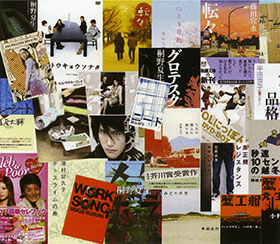Imaging the Lost Generation: Representations of Japan’s “Unequal Society” in Popular Culture Media
June 2008 - September 2013
 This project explores literary and popular culture representations of the recent discourse on Japan as a “society of widening gaps” (kakusa shakai), a notion that has all but replaced the older view of Japan as not only ethnically but also socially homogeneous. Popular cultural media including contemporary literature reverberate this dramatic shift in self-perception and, at the same time, shape and reinforce the understanding of Japanese society as increasingly unequal. From a growing corpus of literary works now frequently labeled ‘precarious’ or ‘new proletarian’ literature to recent films, TV dramas and other popular media dealing with changes in the workplace, the discussion has gained momentum through the resurfacing of old proletarian literary texts as exemplified in the 2008 Kanikōsen boom and its cross-media adaptations. This revival is accompanied by a larger social shift wherein proletarian ideals are recontextualised to suit contemporary cultural representation. Focusing on central topoi such as “work”, this project explores how “kakusa shakai” is being negotiated in recent literary works, films and television dramas and analyzes what discourses are inscribed in the (media) texts. The broader aim is to explore various forms of cultural representation with regards to their respective relation to power from a cultural studies point of view. A special focus lies on the freeter figure representations of which oscillate between the search for ‘alternative happiness’ and the drift into precariousness.
This project explores literary and popular culture representations of the recent discourse on Japan as a “society of widening gaps” (kakusa shakai), a notion that has all but replaced the older view of Japan as not only ethnically but also socially homogeneous. Popular cultural media including contemporary literature reverberate this dramatic shift in self-perception and, at the same time, shape and reinforce the understanding of Japanese society as increasingly unequal. From a growing corpus of literary works now frequently labeled ‘precarious’ or ‘new proletarian’ literature to recent films, TV dramas and other popular media dealing with changes in the workplace, the discussion has gained momentum through the resurfacing of old proletarian literary texts as exemplified in the 2008 Kanikōsen boom and its cross-media adaptations. This revival is accompanied by a larger social shift wherein proletarian ideals are recontextualised to suit contemporary cultural representation. Focusing on central topoi such as “work”, this project explores how “kakusa shakai” is being negotiated in recent literary works, films and television dramas and analyzes what discourses are inscribed in the (media) texts. The broader aim is to explore various forms of cultural representation with regards to their respective relation to power from a cultural studies point of view. A special focus lies on the freeter figure representations of which oscillate between the search for ‘alternative happiness’ and the drift into precariousness.
Events
Team
 Kristina Iwata-Weickgenannt (until September 2013)
Kristina Iwata-Weickgenannt (until September 2013)